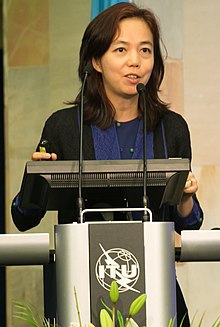For followers of peer networks gravitated by Von Neumann's Intel that 100 times more tech per decade 2035 back for 1935 would either end in sustainability for all or none of human species (systems/chaos maths just doesn't spiral to some middle ground by mathematical definition) its joyful that AI for good is the centrepiece of the 9 interlocking ways forward Engineer Guterres has designed into digital roadmapping UN2.0 the brand that needs to lead the world's collaborative and effectiveness rankings
Fuller library of how UN evolved from SDGs to UN2.0 digital roadmapping since 2015 is here
UN2.0 is not just a benchmark for UN but all govtech and open society
AI is multiplying out of at least 50 practice services of the UN such as the FAO's food or the WHO's health but its deepest exponentials are multiplying out of Geneva ITU (back in 1865 the world's most collaborative brand as nobody wanted 2 telegraph standards or telecoms or satellite telecoms or ...) and 3 new headquarters focused teams in ny all closely clustered around Guterres - tech envoy, deep data's global pulse, OC - lot longer tour at our world record jobs briefing on Guterres- BELOW ARE glimpses of aIforgood tours 24/7/365 massively openly online cooperated out of Geneva with extra commentary from wikipedia
AI for Good is a year round digital platform of the United Nations, where AI innovators and problem owners learn, discuss and connect to identify practical AI solutions to advance the UN SDGs. The impetus for organizing global summits that are action oriented, came from existing discourse in artificial intelligence (AI) research being dominated by research streams such as the Netflix Prize (improve the movie recommendation algorithm).[1] AI for Good aims to bring forward Artificial Intelligence research topics that contribute towards more global problems,[2][3] in particular through the Sustainable Development Goals. AI for Good came out of the AI for Good Global Summit 2020 which had been moved online in 2020 due to the COVID-19 Pandemic. AI for Good is organized by the Standardization Sector of ITU (ITU-T). Since moving online, AI for Good developed into three main programme streams: Learn, Build, and Connect. AI for Good also helps organize ITU's Global Standards Symposium.. In 2022 this as moved the "Neural Network" platform.[4] Speakers include:[5]
Global Summit 2019[edit]
The third AI for Good Global Summit took place from 28 May to 31 May, and gave rise to the ITU Focus Group on Artificial Intelligence for Autonomous and Assisted Driving with several workshops and VIP events having taken place on May 27.[6] Some of the speakers included:
Global Summit 2018[edit]
The second AI for Good Global Summit took place from 15 to 17 May 2018 at the ITU headquarters in Geneva, Switzerland and generated 35 AI project proposals[7] including the ITU-WHO Focus Group on Artificial Intelligence for Health with the World Health Organization.[8][9][10] Speakers included:[11]
The ITU also relaunched its Journal ICT Discoveries during the 2018 Global Summit, with the first edition being a special on Artificial Intelligence.[12]
Global Summit 2017[edit]
The first AI for Good Global summit took place from 7 to 9 June 2017. Speakers at the event included:[13] [14]
|
One of the outcomes of the 2017 Global Summit was the creation of an ITU-T Focus Group on Machine Learning for 5G.
Related applications[edit]
Several similar terms have been used to describe related applications of AI to global issues. These include "AI for Earth", referring specifically to environmental applications;[15][16] "Humanitarian AI", referring to applications for humanitarian ends;[17][18] and "AI for Healthcare".[19]




No comments:
Post a Comment